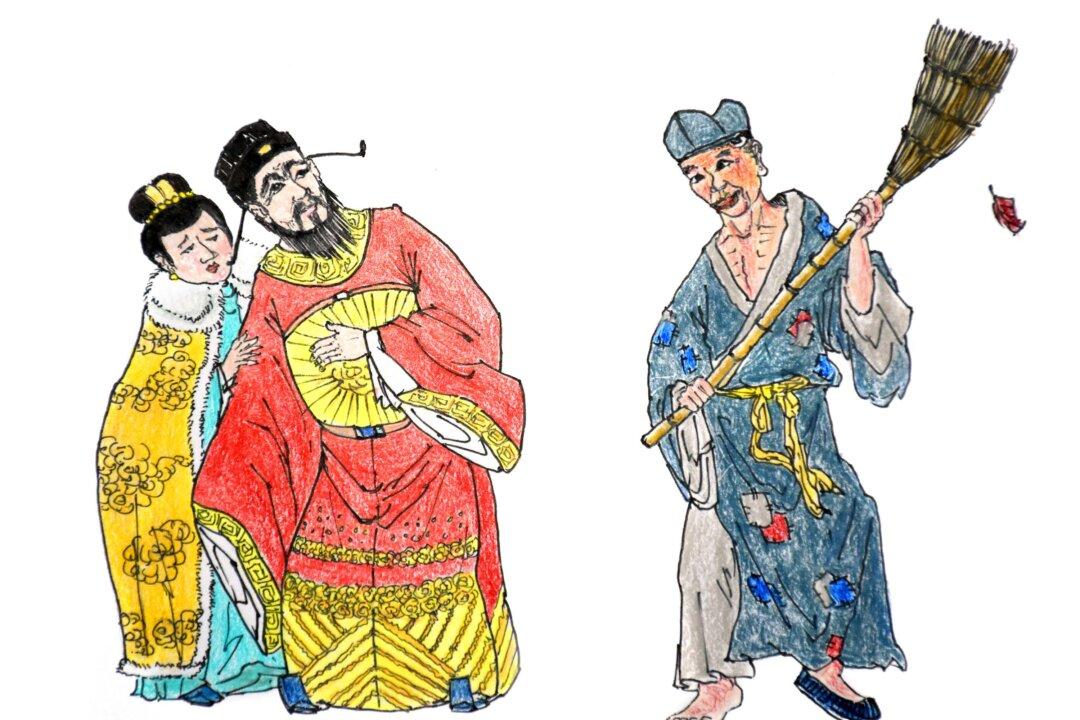There is a clay statue of a mad monk in the 500 Arhats Hall at Xiyuan Temple in the city of Suzhou. The monk has ten defects: a crooked mouth, a hunchback, crossed eyes, bat ears, ringworm of the scalp, uneven legs, scrawny hands, slanted shoulders, a pigeon chest, and a wonky nose. He is thus known as the “Monk With Ten Imperfections”.
His looks are special, but not ugly. The belt around his waist looks as real as a cloth belt.





